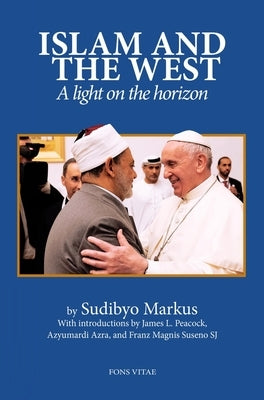This groundbreaking tome by Sudibyo Markus provides a comprehensive analysis of the history of Muslim-Christian relations, from the early spread of Islam to the present day. The author identifies four historical events that have profoundly affected these relations, beginning with the Crusades War, explained as the catalyst for the ensuing hostilities that persist between Muslims and Christians today. With references to the Qur' an, the work of notable scholars, and relevant statistical data, Markus details the causes and effects of prejudices and makes a case for peace. He points to several successful intercivilizational dialogues for religious peace in modern history: The Nostra Aetate Declaration of the Second Vatican Council, the open letter to Pope Benedict XVI " A Common Word" (" Kalimantun Sawa" ), the 2016 Agenda for Humanity, and the Dubai Declaration on " Human Fraternity for World Peace and Living Together" along with the Encyclical, " Fratelli Tutti." He insists that religious congregations worldwide must transform themselves into instruments for peace, especially in a time where so many people are displaced due to religious and ideological conflict. In addition to a broad discussion of the phases and processes of the global interaction between East and West, the book integrates a case study of Indonesia, the country of Markus's birth, from the era of colonialism until its independence. He attributes much of his perspective to his years of work with a team of anthropologists in Indonesia. Islam and the West is an important and necessary read for not only religious scholars, practitioners, and workers in religious and civic activities, but anyone who seeks to foster a more peaceful world.
Author: Sudibyo MarkusPublisher: Fons Vitae
Published: 03/17/2023
Pages: 388
Binding Type: Paperback
Weight: 1.41lbs
Size: 8.92h x 6.33w x 0.97d
ISBN13: 9781941610923
ISBN10: 1941610927
BISAC Categories:-
Religion |
Islam | HistoryAbout the Author
Sudibyo Markus is a humanitarian activist born in Pare, in Kediri, East Java, Indonesia. Upon completing his studies at the School of Medicine of Gadjah Mada University (Yogyakarta), he worked for the Ministry of Social Affairs of the Republic of Indonesia until 1988, when he joined the United Nations Development Program (UNDP) to broaden his humanitarian vision and networks. He served as chair for several departments of the Muslim organization Muhammadiyah, of which he founded the youth wing and which has enhanced his connections with many civil society and interfaith communities worldwide.

